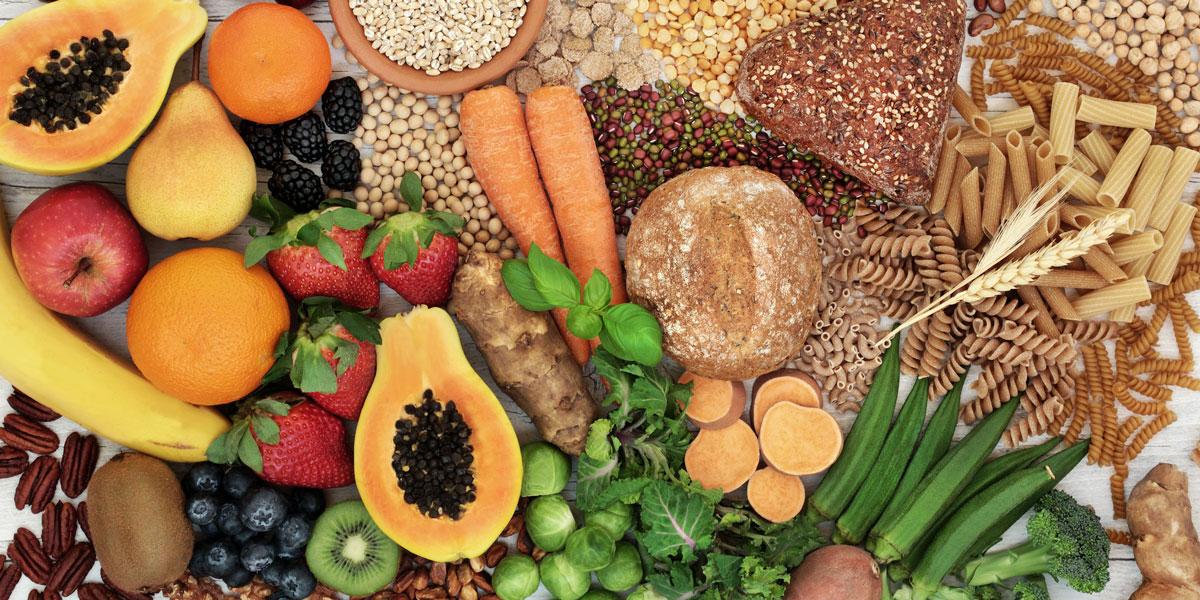In the world of fitness and nutrition, carbohydrates often find themselves at the center of debate. Are they friend or foe in the quest for optimal health and peak performance? Understanding the role of carbohydrates in a fitness-focused diet is crucial for anyone looking to enhance their physical performance and achieve their health goals. This article aims to demystify the science behind carbohydrates, shedding light on their essential functions and how they can be strategically incorporated into your diet to fuel workouts, aid recovery, and support overall well-being. With a confident grasp of carbohydrate knowledge, you can make informed dietary choices that align with your fitness ambitions, ensuring your body gets the right kind of energy it needs to thrive.
Understanding Carbohydrates: The Fuel for Your Fitness Journey
Carbohydrates are often misunderstood, yet they play a pivotal role in a diet geared towards fitness. They are your body’s primary source of energy, fueling both daily activities and intense workouts. When you consume carbohydrates, your body breaks them down into glucose, which is then used to power your muscles and brain. To harness the full potential of carbohydrates, it’s essential to focus on quality sources. Complex carbohydrates such as whole grains, legumes, and vegetables are packed with nutrients and provide a steady release of energy. This sustained energy is crucial for maintaining endurance and stamina during your fitness routines.
- Whole Grains: Brown rice, quinoa, and oats are excellent choices for sustained energy.
- Fruits and Vegetables: Opt for a colorful variety to maximize your intake of vitamins and minerals.
- Legumes: Beans, lentils, and chickpeas are rich in both carbohydrates and protein, offering a dual benefit.
By strategically incorporating these sources into your diet, you can enhance your performance and recovery, ultimately supporting your fitness goals. Remember, the key is balance and moderation, ensuring that carbohydrates complement proteins and fats for a well-rounded nutritional approach.
Balancing Macronutrients: Optimal Carbohydrate Intake for Performance
Understanding the pivotal role of carbohydrates in a fitness-focused diet is essential for optimizing performance. Carbohydrates serve as the primary energy source during high-intensity workouts, fueling your muscles and enhancing endurance. To harness their full potential, it’s crucial to tailor your carbohydrate intake according to your activity level and fitness goals.
- High-Intensity Training: For those engaging in intense, prolonged activities like weightlifting or long-distance running, a diet rich in complex carbohydrates is beneficial. Aim for 50-60% of your total caloric intake from carbohydrates to sustain energy levels and promote recovery.
- Moderate Activity: If your routine includes moderate exercise, such as daily jogging or cycling, adjust your intake to around 45-55% of your total calories. This balance helps maintain energy without excess storage.
- Low-Intensity or Rest Days: On days with minimal activity, reducing carbohydrate intake to 40-50% can help prevent unnecessary calorie surplus, while still providing enough energy for basic metabolic functions.
Incorporating a variety of carbohydrate sources like whole grains, fruits, and vegetables ensures not only a steady supply of energy but also a rich intake of fiber and essential nutrients. Remember, balancing your macronutrient intake is not a one-size-fits-all approach. It’s a personalized strategy that aligns with your unique lifestyle and fitness aspirations.
Timing and Types: Choosing the Right Carbs for Pre and Post-Workout
When it comes to fueling your workout and recovery, timing and type of carbohydrate intake play a crucial role. Before a workout, opt for complex carbohydrates like whole grains, oatmeal, or sweet potatoes. These carbs are digested slowly, providing a steady release of energy, ensuring you have the endurance needed for your exercise session. Aim to consume these about 2-3 hours before you hit the gym to give your body ample time to convert them into glycogen, the preferred fuel for muscles during prolonged activity.
Post-workout, the focus shifts to replenishment and recovery. Here, simple carbohydrates are your best friend. These include options like fruits, white rice, or even a sports drink, which are absorbed quickly by the body. Consuming these within 30 minutes after your workout helps to rapidly restore glycogen levels and kickstart muscle recovery. Consider pairing them with a protein source to further enhance recovery. Remember, the right carbs at the right time can elevate your fitness game, keeping you energized and ready for your next challenge.
Crafting a Carb-Conscious Meal Plan: Strategies for Sustained Energy
Designing a meal plan that prioritizes carbohydrates wisely can be a game-changer for anyone focusing on fitness and energy sustainability. Carbohydrates are not the enemy; rather, they are a powerful fuel source when chosen and timed appropriately. To harness their benefits, consider these strategies:
- Choose Complex Carbs: Opt for whole grains, legumes, and vegetables. These not only provide sustained energy but also deliver essential nutrients and fiber.
- Time Your Intake: Consume higher amounts of carbs around workouts to maximize energy and recovery. Prioritize carbs in meals before and after exercise.
- Balance with Protein and Fats: Ensure each meal includes a balance of macronutrients. This helps in maintaining energy levels and supports muscle repair.
Incorporating these strategies into your daily routine will not only enhance your physical performance but also support overall well-being. By making informed choices, you can transform your diet into a robust foundation for your fitness journey.




